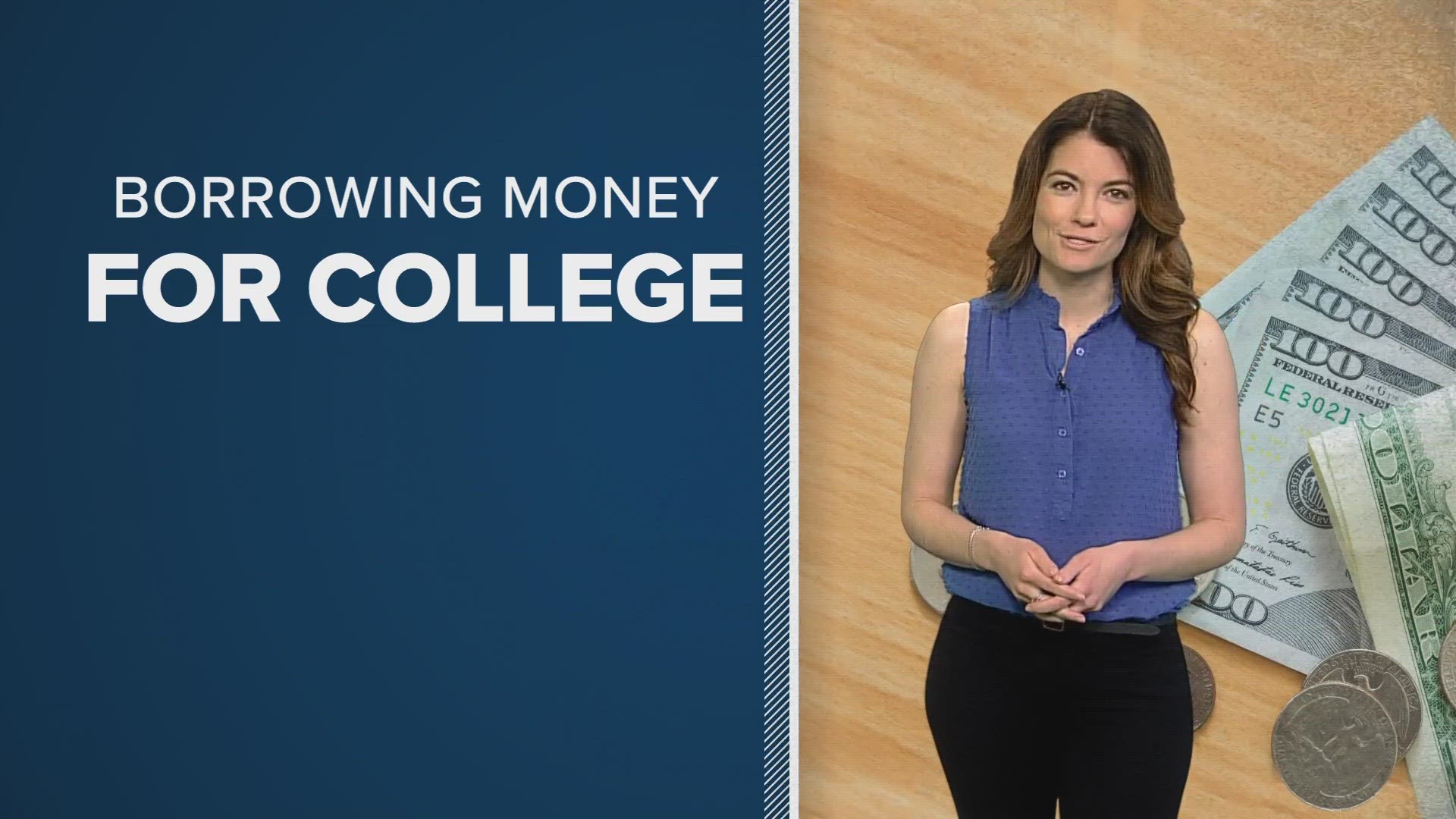INDIANAPOLIS — National College Decision Day is Monday, May 1.
That means a lot of families are considering student loans right now.
Interest rates
Interest rates are up on everything from mortgages to car loans.
And the same upward trend will affect student loans.
Eliza Haverstock, with NerdWallet, said interest rates on federal student loans have been increasing steadily over the past few years.
Let's break down a 10-year, $50,000 loan.
In the 2020-2021 school year, the federal rate was 2.75%.
So, the monthly payment after graduation might be around $477.
In the 2023-2024 school year, experts predict the rate could be 5% or more.
That borrower's monthly payment on the same loan would be at least $530.
Over the life of the loan, that almost doubles the interest paid to a lender.
"We won't really know what the interest rate will be for the upcoming school year until mid-May," Haverstock said, "and we won't have an official announcement until this summer."
Federal student loans are a fixed rate, like a mortgage.
Private loans can be a fixed or variable rate.
Federal student loans vs. private student loans
If you max out the money Uncle Sam allows you to borrow, that is where private loans enter the picture.
But know there are some big differences between the two loan types.
"The interest rates on federal student loans are still lower than on private student loans. And federal student loans also have a lot of protections that private student loans don't have," Haverstock said.
Those include income-driven repayment plans, payment pauses if you lose your job and discharge options if you become permanently disabled.
For private student loans, protections vary by lender.
That is why it is important to ask lenders "what if?" questions.
Most federal student loans also do not require a cosigner or credit check.
Borrowing affordability
As for how much to borrow, there is a rule of thumb.
"Experts typically recommend that students limit the borrowing to what they expect to earn as an annual starting salary in their desired job," Haverstock added.
If your student wants to be a teacher, don't take more than $40,000.
To learn more about monthly payments, NerdWallet offers a student loan calculator.

